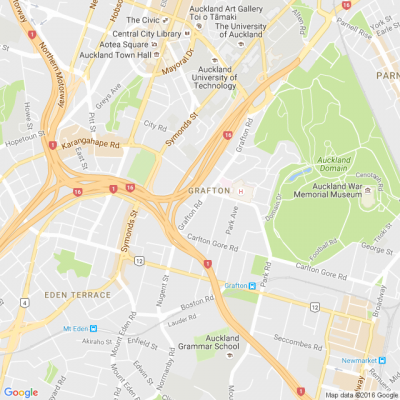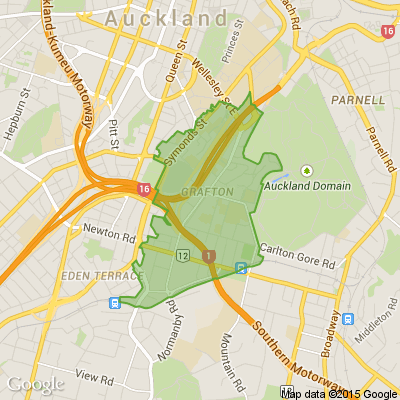Breaking the Cycle of Taha Tinana (Physical Cravings) - Day 11
Breaking the Cycle of Taha Tinana (Physical Cravings)
In te ao Māori (the Māori worldview), humans are seen as beings of both taha tinana (the physical realm) and taha wairua (the spiritual realm). A balance between these aspects is essential for well-being. When we focus solely on satisfying our physical cravings—kai (food), moe (rest), hiahia (desires), and mataku (fear)—we risk losing our connection to wairuatanga (spirituality) and mauri (life force).
The Story of Tūmaro and the Sacred Rākau (Tree)
Once, a man named Tūmaro roamed the vast ngahere (forest) in search of a better life. He was tired, hungry, and filled with uncertainty about his future. As the sun blazed above him, he cried out to the atua (gods), seeking their guidance.
Hearing his plea, Tāne Mahuta, the atua of the forests, sent him a gift: a rākau manaaki (sacred tree) with the power to grant wishes. Exhausted, Tūmaro lay beneath the tree, and his first wish was for moe (rest). The tree immediately granted his desire, providing a cool shade, soft moss, and a gentle breeze that lulled him into a deep sleep.
When he awoke, his puku (stomach) growled with hunger. Without thinking, he wished for kai, and the tree responded with an abundance of delicious hākari (feast). He devoured it greedily, thanking no one for the gift.
Feeling satisfied, his mind wandered to hiahia (desire). Tūmaro wished for a companion to bring him pleasure and ease his loneliness. The tree granted this wish too, and soon he became absorbed in his desires, forgetting his original prayer to the atua.
As the day turned to night, Tūmaro became aware of the darkening ngahere and the distant calls of kēhua (spirits). Fear crept into his mind, and he thought, “What if a wild beast comes to attack me?” As soon as the thought arose, the sacred tree granted it—a kurī ngaro (ferocious beast) appeared and devoured him.
---
The Lesson of Tūmaro
The kaumātua (elders) who shared this story taught that Tūmaro’s downfall was not caused by the rākau manaaki but by his own lack of balance. By giving in entirely to taha tinana (physical cravings) without nurturing his taha wairua (spiritual self), he created a cycle that led to his destruction.
---
Values Reflected in the Story
1. Whanaungatanga (Connection): Tūmaro failed to acknowledge the atua and his connection to the world around him. Gratitude and mindfulness strengthen our relationships with others and with te taiao (the environment).
2. Wairuatanga (Spirituality): The story reminds us that taha wairua must be nurtured alongside taha tinana. Practices such as karakia (prayers) and aroha ki te Atua (love for the gods) maintain spiritual balance.
3. Manaakitanga (Respect and Care): Instead of respecting the sacred gift of the tree, Tūmaro became consumed by his personal desires, neglecting the importance of moderation and care.
4. Kaitiakitanga (Guardianship): The sacred tree symbolises the resources of Papatūānuku (Earth Mother), which must be used responsibly, with gratitude and care.
---
Moral of the Story
The story of Tūmaro teaches us that balance is the key to a fulfilling life. Pursuing the needs of taha tinana without acknowledging taha wairua leads to imbalance and harm. To thrive, we must practice gratitude, moderation, and mindfulness. As values remind us, nurturing our spiritual connection ensures harmony within ourselves, our whānau, and the wider world.
In Tūmaro’s story, the sacred rākau served not only as a gift but also as a reminder of the power of our intentions and the need to honor both physical and spiritual well-being.
Te Pūrākau o Te Rangatira Ngākau Hūmarie - Day 34
The Tale of the Humble Leader
In a small Māori village near the coast of Aotearoa, the whānau were preparing for Te Rā o te Kirihimete (Christmas Day). It was a time of celebration, sharing, and remembering the values of aroha (love), manaakitanga (hospitality), and kotahitanga (unity). However, this year, the village faced a challenge. Their rangatira, Wiremu, had grown distant and prideful, burdened by his position.
Wiremu often made decisions alone, thinking that his wisdom and authority were enough to guide the iwi. While the villagers respected him, they felt unheard, and the spirit of unity began to fade.
As the Kirihimete celebrations approached, the kaumātua, Hinewai, decided to intervene. She invited Wiremu to the marae one evening, where she shared a story about Tāwhaki, the demigod who ascended to the heavens not through power, but through humility and service.
“Wiremu,” Hinewai said, “even the greatest leaders are at their strongest when they serve their people. Leadership is not about standing above others but walking beside them.”
Wiremu reflected on her words but was unsure how to change.
The Lesson of the Whetū (Stars)
On Christmas Eve, as the village prepared for their festivities, a fierce storm rolled in from the sea. The winds howled, and the rain poured, threatening to ruin the celebration. The central whare kai (dining hall) began to leak, and the decorations the tamariki had made were soaked. The people gathered anxiously, unsure of how to proceed.
Wiremu stood at the edge of the marae, looking at the chaos. In that moment, Hinewai’s words echoed in his mind: “Even the greatest leaders serve their people.”
Without hesitation, Wiremu took off his korowai (cloak of leadership) and joined the villagers. He grabbed buckets to catch the rain, helped rebuild the decorations, and reassured the tamariki that their work would be restored. His humility inspired others, and soon the entire iwi was working together, laughing and singing as they prepared the whare for the celebration.
A Kirihimete Under the Stars
When the storm cleared, the sky was filled with bright whetū (stars). The villagers gathered around a glowing fire outside the whare, sharing kai and stories of gratitude. Wiremu stood among them, no longer as a distant rangatira, but as a friend and servant of his people.
Under the starlit sky, Hinewai stood and addressed the iwi.
“This Kirihimete, we are reminded that true leadership is like the brightest whetū. It does not shine to outdo others but guides them through darkness. Wiremu has shown us the power of humility, and through his service, we have rediscovered our unity.”
Wiremu bowed his head humbly. “Tonight, you have all taught me that a leader is nothing without their people. Let us carry this spirit of kotahitanga and aroha into the new year.”
The villagers cheered, and the spirit of Te Rā o te Kirihimete shone brightly in their hearts.
Moral of the Story:
Leadership is not about authority or pride but about humility and service. Like the whetū that guide travelers, a true leader walks alongside their people, bringing light and unity through service and aroha. At Christmas, we are reminded of the importance of giving, humility, and leading with love.
⚠️ DOGS DIE IN HOT CARS. If you love them, don't leave them. ⚠️
It's a message we share time and time again, and this year, we're calling on you to help us spread that message further.
Did you know that calls to SPCA about dogs left inside hot cars made up a whopping 11% of all welfare calls last summer? This is a completely preventable issue, and one which is causing hundreds of dogs (often loved pets) to suffer.
Here are some quick facts to share with the dog owners in your life:
👉 The temperature inside a car can heat to over 50°C in less than 15 minutes.
👉 Parking in the shade and cracking windows does little to help on a warm day. Dogs rely on panting to keep cool, which they can't do in a hot car.
👉 This puts dogs at a high risk of heatstroke - a serious condition for dogs, with a mortality rate between 39%-50%.
👉 It is an offence under the Animal Welfare Act to leave a dog in a hot vehicle if they are showing signs of heat stress. You can be fined, and prosecuted.
SPCA has created downloadable resources to help you spread the message even further. Posters, a flyer, and a social media tile can be downloaded from our website here: www.spca.nz...
We encourage you to use these - and ask your local businesses to display the posters if they can. Flyers can be kept in your car and handed out as needed.
This is a community problem, and one we cannot solve alone. Help us to prevent more tragedies this summer by sharing this post.
On behalf of the animals - thank you ❤️








 Loading…
Loading…




